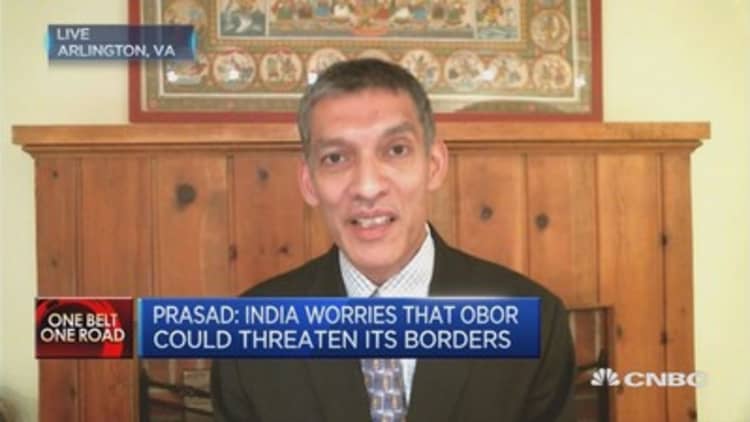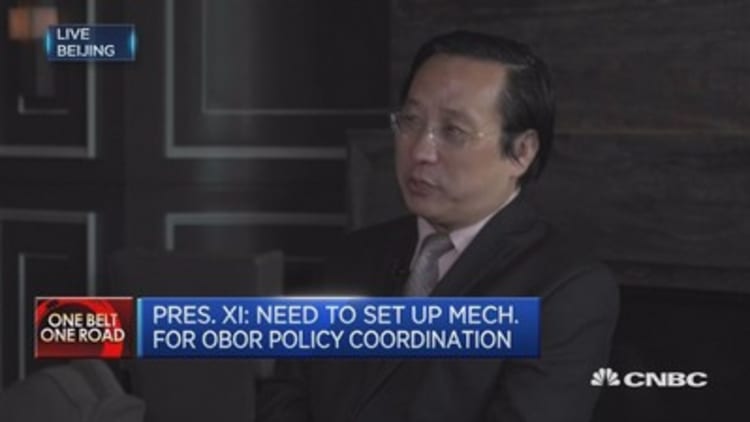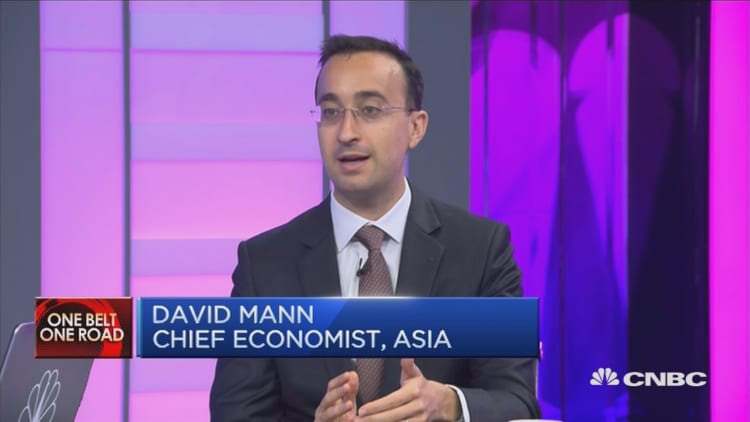


India has repeatedly indirectly criticized one of China's flagship policy programs in a move that could worsen bilateral ties between the Asian heavyweights.
Over the weekend, Indian Prime Minister Narendra Modi rejected China's offer to participate in the ambitious "Belt and Road" global investment initiative, also known as "One Belt, One Road." Beijing had previously invited New Delhi to join the China-Pakistan Economic Corridor — a network of roads, railways and pipelines linking Pakistan's southern port of Gwadar to China's western Xinjiang province — which Chinese President Xi Jinping has deemed central to OBOR.
The crux of India's reluctance to the program is the fact that the $46 billion corridor will traverse Pakistan-occupied Kashmir, with officials declaring that the venture violated Indian sovereignty. Most of Kashmir has been divvied up between the two South Asian nations, but the Himalayan region still remains a hotly contested issue between New Delhi and Islamabad.
The corridor would "destroy any chance of a peaceful settlement of the Kashmir dispute," Samir Saran, vice president of the New Delhi-based Observer Research Foundation, said in a recent note. "In effect, Pakistan and China are suggesting that it is conceivable Kashmir can be segregated into separate units that merit unique economic, political and military engagement."
Beijing has said the project was strictly focused on economic cooperation and devoid of geopolitical issues, but in a strongly-worded statement on Saturday, New Delhi said it could not accept a project that ignored its core concerns on sovereignty.
It's not just the corridor, though: India has beef with the entire OBOR program.
The South Asian giant refused to send a delegation to a Chinese conference on the topic over the weekend, where Xi pledged $100 billion to finance projects. Saturday's statement also listed several concerns behind the venture, noting that any initiative promoting connectivity between countries must not create unsustainable debt burdens for communities. Indeed, the prospect of host countries struggling to pay back loans for infrastructure projects executed by Chinese companies has been one of the biggest criticisms of the program.
"New Delhi's objection is that OBOR is a unilateral, political and strategic initiative," said Dhruva Jaishankar, foreign policy fellow at Brookings India. "The concern is that unviable terms of loans will create debt burdens, which will then translate into political and military influence. This directly compromises Indian security given the nature of its relations with many of its neighbors."
Modi's tough attitude is indicative of India's nationalistic policy stance and has won him praise at home, but it could have economic consequences.
India is in dire need of capital to build up its power stations as well as connectivity between its highways, railways and airports, Victor Gao, chairman of the China Energy Security Institute, told CNBC on Monday. "This is exactly what OBOR can offer: resources to India."
"It will be wise for Indian leaders to think hard about OBOR and join as early as possible," he continued, noting that if New Delhi did not reconsider before OBOR gained momentum, "it may be too late for India to join."
But as Jaishankar pointed out, India hasn't missed out on Chinese money since the program was launched in 2013: "Chinese investment in India, including in infrastructure, has increased manifold over the past couple of years and is now in the billions of dollars."
What's bothering India
It's not just Kashmir — there are a number of concerns behind New Delhi's reluctance to join OBOR at a time of strained India-China ties.
Beijing has repeatedly opposed New Delhi's bid to enter the 48-nation Nuclear Suppliers Group. Additionally, the mainland warned last month of serious damage to relations following an April visit by the Dalai Lama to Arunachal Pradesh — an Indian state that's also partly claimed by Beijing.
New Delhi and Beijing have a long history of territorial disputes; Aksai Chin is another source of contention in addition to Arunachal Pradesh. Located alongside the China-India border, that region is administered by China, but New Delhi says at least 38,000 square kilometers belong to India.
"India is concerned that OBOR disguises China's territorial ambitions, including strengthening its claims on parts of northeastern India that it claims as its own territory," explained Eswar Prasad, professor at Cornell University. More broadly, New Delhi is concerned about being encircled if Beijing does build strong relations with neighboring countries such as Pakistan and Myanmar, Prasad continued.
Chinese activities in Gilgit-Baltistan, an area administered by Pakistan but claimed by India, is another source of animosity. Over the weekend, Beijing and Islamabad signed a memorandum of understanding to construct and fund five dams along the Indus River, two of which are located in Gilgit-Baltistan.
"The optics of China funding projects in territory that Delhi deems to be disputed is likely to be seen as highly provocative in India," said Pratyush Rao, senior South Asia analyst at Control Risks. "The Modi government is likely to react by fast-tracking hydro-power projects in Indian-administered-Kashmir, that could in turn impact water flows downstream into Pakistan and trigger new water disputes."

